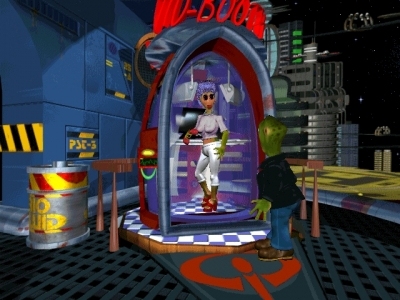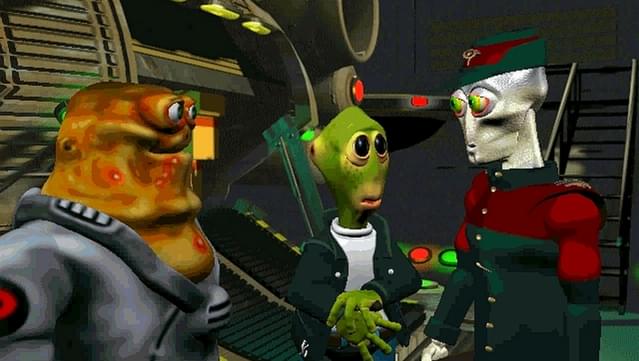
Right clicking is the only way to change the active icon, and there are 4 options in the cycling selection: look, take, use/talk (which looks similar to take), or use with. Regrettably, several of the game's puzzles are impossible to solve without trivia from the encyclopedia, but there are no discernable clues to tell which parts of the encyclopedia must be read or which parts can be skipped.īeyond the inventory screen, too, the interface is awkward. The encyclopedia entries are not alphabetized, yet new entries do not usually appear at the beginning or the end either. Among the tabs is an encyclopedia, where new, miscellaneous information about the game universe is incessantly dumped in no particular order. This screen closes itself at random, frequently.

The inventory screen itself is a multi tabbed interface with confusing labels. Thus, there are stretches of the game when the player cannot even hit a quit button to exit the game. The system (save/load/quit) menu is accessible only via the inventory screen, and in several of the locations the player is denied access to the inventory screen. The deficiencies in the game's controls go beyond the volume issues. Alas, there is no option to control the volume. Elsewhere, industrial and crowd noises constitute the sound effects, which sometimes are much too loud, drowning out the characters' voices. The game is sparse in music, except for a few pop tunes in some of the cut scenes. Many of the minor characters are funny, obsessive types with strange accents some, however, are simply grating, with giddy, blaring voices. She is a rather shallow "Iron Lady" (as her surname surely suggests). Far less interesting, ultimately, is Feeble's fellow rebel and love interest, a mechanic named Delores Thatcher. Among the other major characters, the show stealer is a helpful yet homicidal robot named SAM. Unfortunately, the game's puzzles dictate so many nonsensical actions that the protagonist loses plausibility over time. Voiced by Robert Llewellyn (of Red Drawf fame), Feeble comes across convincingly as a disgruntled bureaucrat who wants to be a jock. The cast of characters starts promisingly but turns into a mixed bag. Few adventure games have as much cut scene materials as The Feeble Files has, and each cut scene really gives a boost to the player's level of immersion. Throughout the game, those same qualities continue to be the highlights. The game makes a good first impression by means of a long and eventful intro sequence that is filled with funny dialog and expressive voice acting as well as graphics which look surprisingly multidimensional of a game from that era. Trouble awaits, and Feeble ultimately has to become a rebel in order to save his own skin. On a particularly eventful day (or cycle, as it is called in Feeble's world), Feeble accidentally damages an expensive research station and is required to report to his superior. He is a small cog in the machinery of a totalitarian, interstellar empire called the OmniCorporation, led by an enigmatic entity called the OmniBrain, whose ideology is enshrined in a book called the OmniBible. The game's protagonist is a green, wide-eyed alien named Feeble, who works in the Crop Circles Division of the Ministry of Galactic Uncertainty.


Although the production values are potentially appealing, the game suffers from obtuse puzzles as well as an awkward, buggy interface and ultimately fails to deliver a rewarding gaming experience.

The Feeble Files stands out for having loads of cut scenes, famous television actors providing the voices, and an Orwellian theme that makes the humor dark. Infocom's adaptation of The Hitchhiker's Guide to the Galaxy has become an interactive fiction bestseller, and Sierra On-Line's Space Quest has spawned 6 popular games as a series.Ī relative latecomer among sci-fi comedy adventures is The Feeble Files, released in 1997 by British developer Adventure Soft. Sci-fi comedy holds an important place in the canon of classic adventure games.


 0 kommentar(er)
0 kommentar(er)
